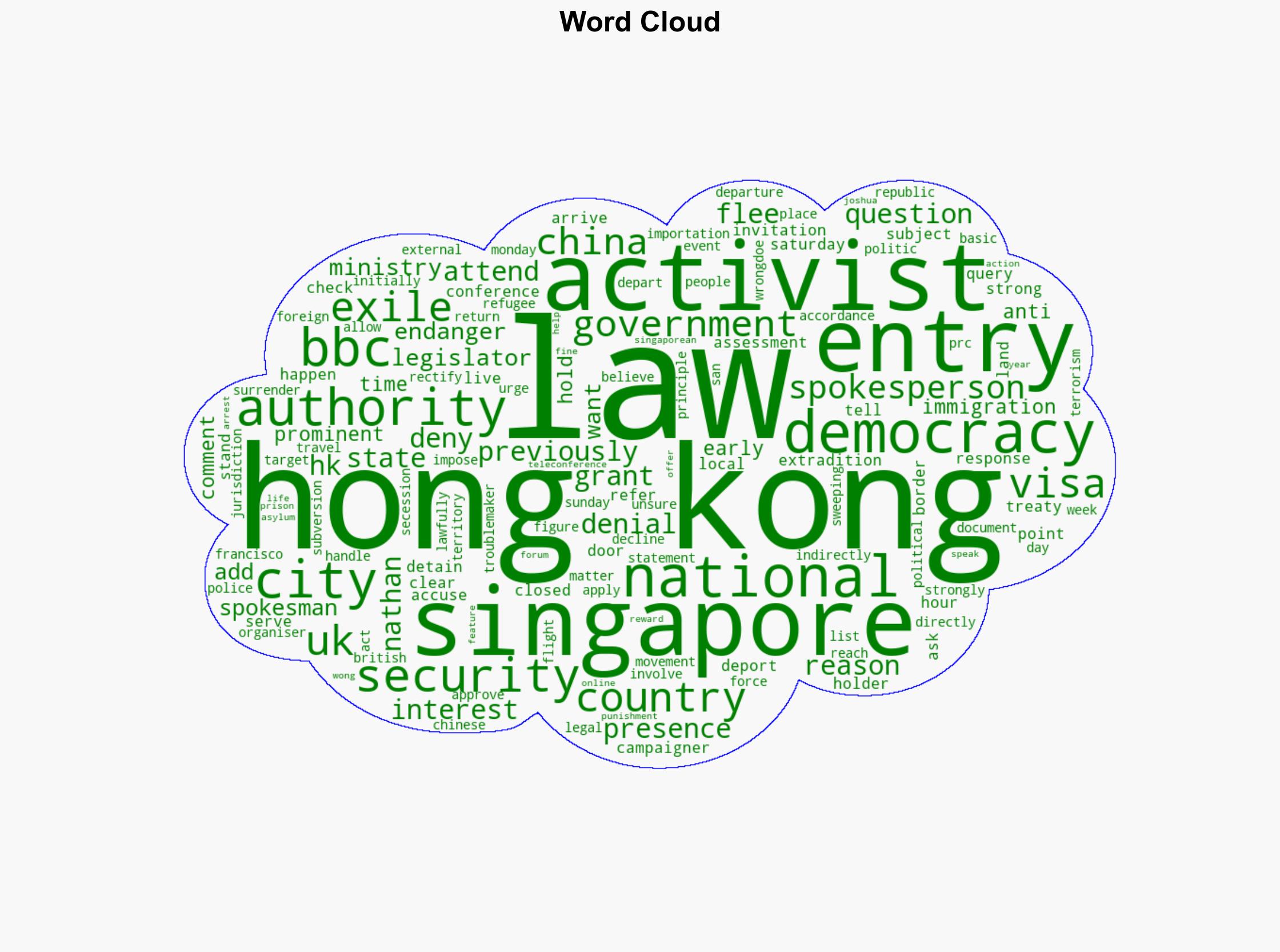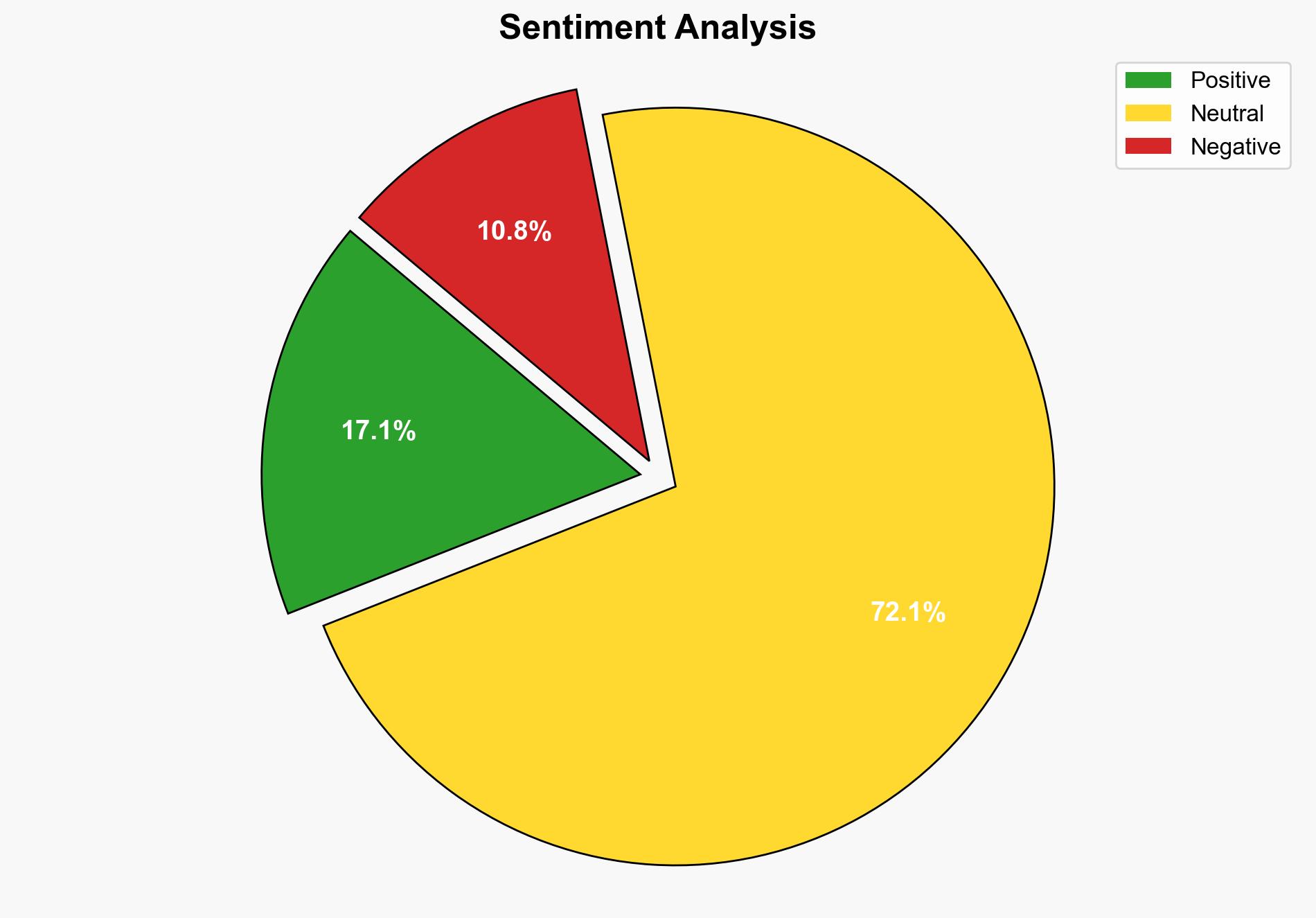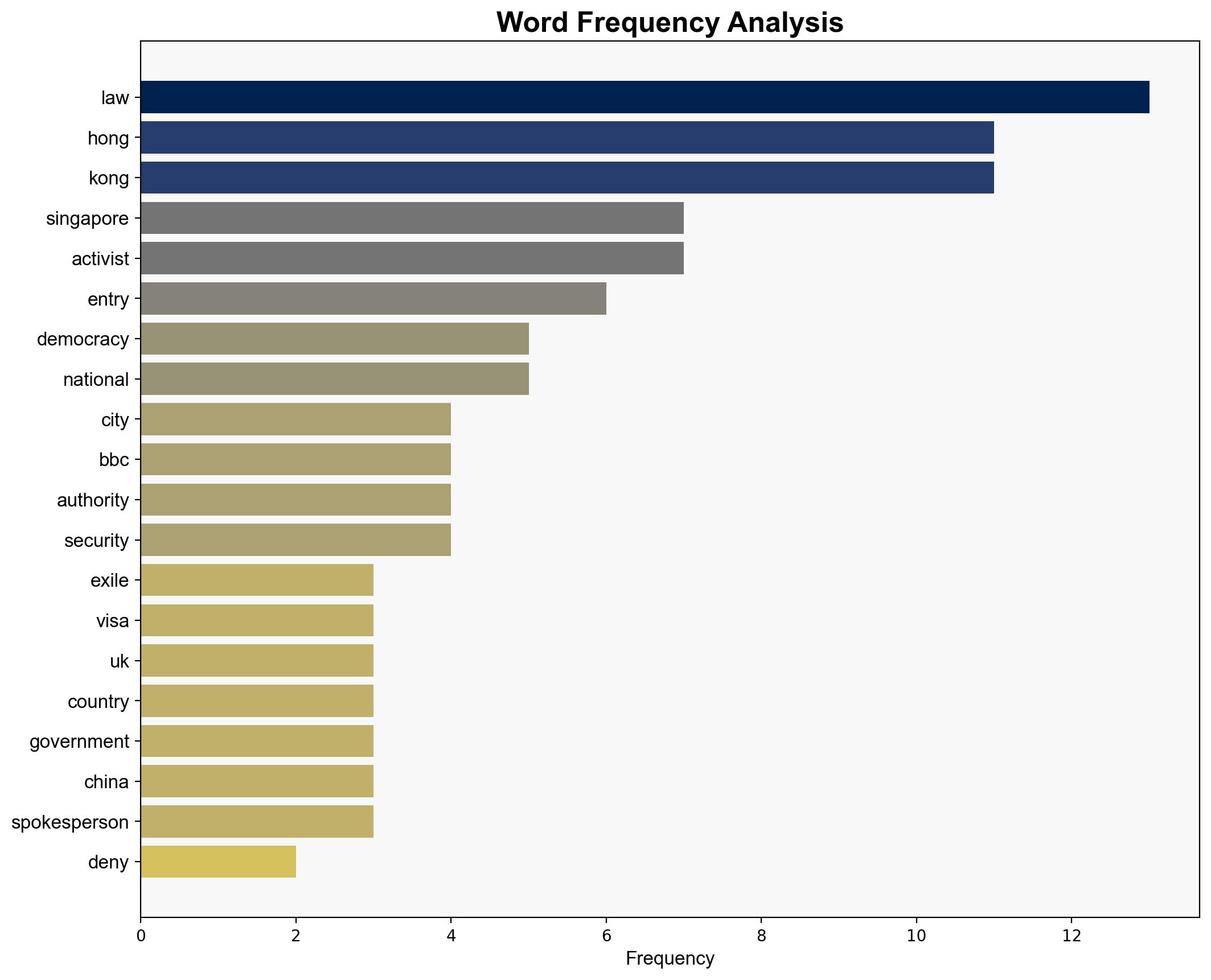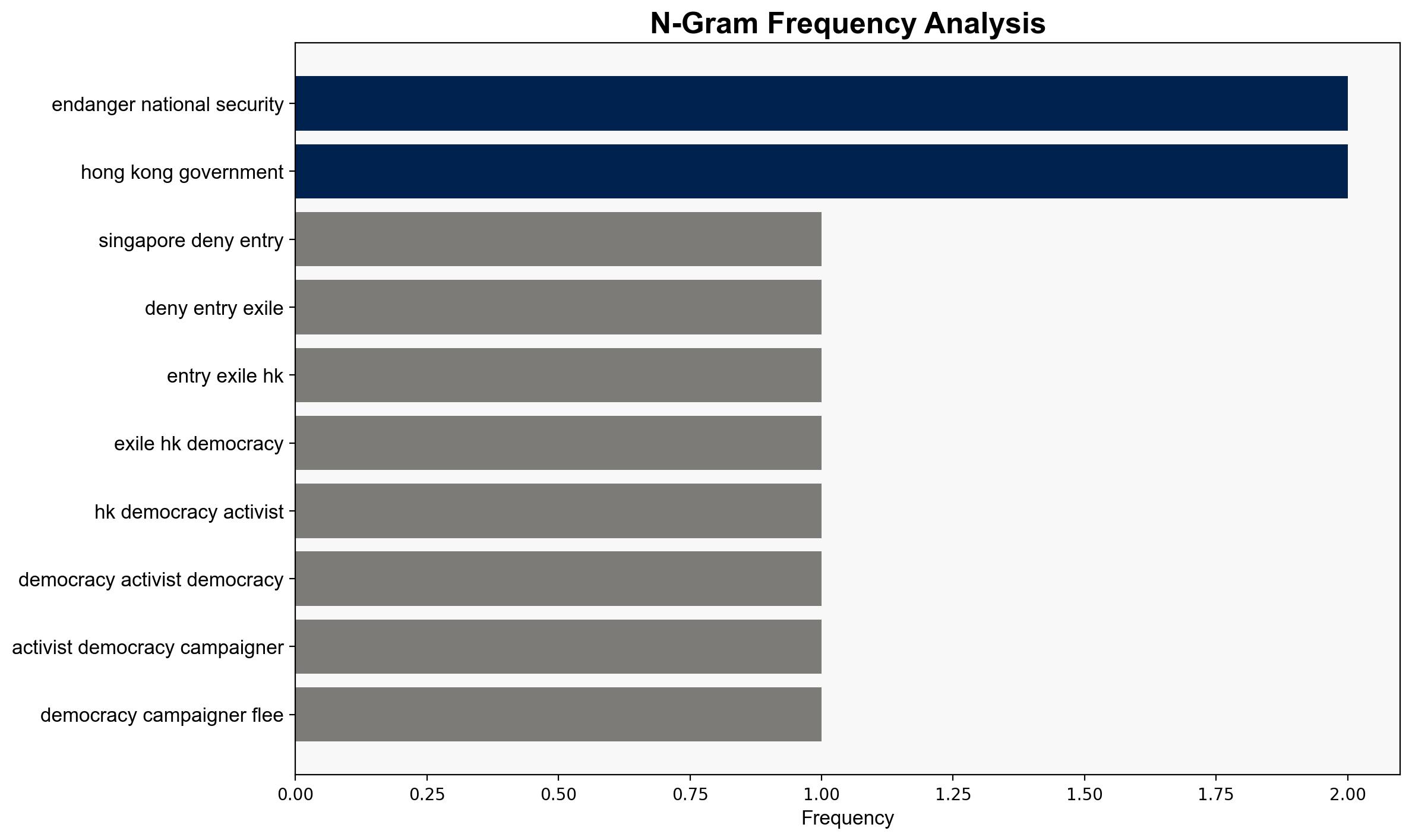Singapore denies entry to exiled HK pro-democracy activist – BBC News
Published on: 2025-09-29
Intelligence Report: Singapore denies entry to exiled HK pro-democracy activist – BBC News
1. BLUF (Bottom Line Up Front)
The most supported hypothesis is that Singapore’s denial of entry to Nathan Law is primarily motivated by its policy to avoid political controversies and maintain neutrality, rather than direct pressure from China. Confidence level: Moderate. Recommended action: Monitor Singapore’s immigration policies for patterns indicating shifts in response to external pressures, and assess implications for regional diplomatic relations.
2. Competing Hypotheses
1. **Hypothesis A**: Singapore denied Nathan Law entry due to its policy of avoiding political controversies and maintaining neutrality in regional disputes. This aligns with its historical stance on non-interference and prioritizing national interest.
2. **Hypothesis B**: The denial was influenced by direct or indirect pressure from China, given Law’s status as a prominent critic of the Chinese government and the ongoing geopolitical tensions.
Using ACH 2.0, Hypothesis A is better supported by Singapore’s consistent policy statements emphasizing national interest and non-importation of foreign political issues. Hypothesis B lacks direct evidence of Chinese influence in this specific incident, though it remains plausible given broader geopolitical dynamics.
3. Key Assumptions and Red Flags
– **Assumptions**: Hypothesis A assumes Singapore’s immigration decisions are primarily driven by internal policy rather than external influence. Hypothesis B assumes China’s influence extends to Singapore’s immigration decisions.
– **Red Flags**: Lack of direct evidence linking China’s influence to this specific decision. Potential cognitive bias in interpreting Singapore’s actions as solely influenced by China.
– **Blind Spots**: Limited insight into internal Singaporean decision-making processes and potential undisclosed diplomatic communications.
4. Implications and Strategic Risks
– **Geopolitical**: Singapore’s actions could strain relations with pro-democracy advocates and Western nations, potentially impacting its diplomatic standing.
– **Economic**: Minimal direct impact, but prolonged perception of alignment with China could influence foreign investment perceptions.
– **Psychological**: May deter other activists from traveling to or through Singapore, influencing regional activist networks.
5. Recommendations and Outlook
- Monitor Singapore’s future immigration decisions for patterns indicating shifts in policy or external influence.
- Engage in diplomatic dialogue with Singapore to clarify its stance and intentions, reducing misinterpretations.
- Scenario Projections:
- Best Case: Singapore clarifies its policy, maintaining neutrality and strong diplomatic ties.
- Worst Case: Perceived alignment with China leads to regional diplomatic isolation.
- Most Likely: Continued cautious policy balancing national interest with regional dynamics.
6. Key Individuals and Entities
– Nathan Law
– Singapore Ministry of Home Affairs
– Hong Kong Government
– Chinese Foreign Ministry
7. Thematic Tags
national security threats, regional focus, geopolitical dynamics, diplomatic relations





